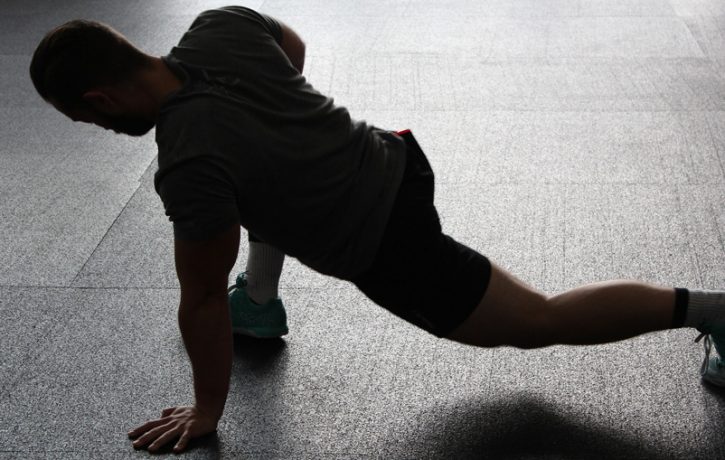in Joints & Muscles, Sports Physiotherapy
Stretching, Strengthening and Movement

The points spoken about here are aspects that in some activities you may not consider focusing on. More often stretching is the favourable routine in cardio training and sometimes completely avoided in gym training. What will be explained here is why both are important, and for a real success in your training and avoiding aches and pains to ensure you do a bit of both.
Strengthening and Movement
Even if you don’t exercise on a regular basis, perhaps just work at a desk. You are likely to suffer with “tight” shoulders or a “stiff” neck. Nobody is safe! Your reaction is often to get up and have a walk around, or simply stretch your muscles and it can temporarily ease the ache. In this particular scenario it is usually due to weakness in the shoulders and neck leading to fatigue from being in such a static position for so long. The way to conquer that is to build some strength in your upper back. Doing so will address the achiness that some people feel, but the best way to conquer the stiff feeling is to have your own movement programme set up also. Simple neck rotations, shoulder rolls plus a few more every hour or so, and in the long term you can reap the benefits. At this point it may be a question of “how do I know if I’m stiff or have weakness?” Well that circles back to your lifestyle. If you exercise on a regular basis, including focus on your upper back it may be stiffness which can also be addressed through massage. If you have a manic schedule and struggle to make time for exercise, or simply don’t enjoy it, it’s more likely weakness. In simpler terms, if you have discomfort in an area of your body, either set up some regular movements or build some strength to it and it should resolve. If not, give us a call. It may need professional intervention.
When your lifestyle is fairly sedentary it’s something you may struggle to work into as a routine, but it can be as simple as 20 minutes every couple of days going through your own exercises at home, maybe even at your desk depending on which you choose. Desk professions are a great example, but this can also all apply to mothers, labourers and in a lot of cases the elderly.
On the other side of the coin, if you regularly train and keep fit, and still have discomfort in certain muscle groups, think logically about it; do you allow a full range of movement through that joint? If not, allow it. Is there an excessive load causing soreness? If there is, reign it back a bit. Progression is always key, and if you don’t slowly build it, you can find yourself in the deep end before learning to swim. Only train for what your body will physically allow you to do. Going any further than that will lead to injury eventually.
Stretching
Most of you involved with regular cardio training will have a stretching routine, which is great. The problem with that is… are you stretching too much?
Stretching muscles increases flexibility. When increasing flexibility you lose some strength. When losing strength and continuing your regular training sessions, you can end up injured. That’s right, stretching can lead to injury if performed too often!
Something to understand is when you stretch, that’s exactly what you’re doing. The muscles are put under stress for a period of time, being taught that you want to prevent tightness and a lack of range of movement. This is not something everybody needs. In cardio training, the only time you can benefit from stretching physically is at the end of the session. Static stretches will allow your blood to feed the muscles easier, and help clear out lactic acid preventing the next day soreness, not completely however. Static stretching at the start of a session only really leads to a weaker anatomy; the way you want to warm up is dynamically. Movement of all your joints through full range of movement will attract blood flow, therefore you are actually warming up.
Other areas of training, such as being in the gym, it’s rare to witness members go through a regular stretch routine before or after training again generally speaking. It relates back to the cardio topic; stretch after you train to allow a better recovery, and beforehand just ensure your body is actually warmed up. Stretching cold muscles will do no good!
For more help or advice please call Kieran at The Body Matters on 01702 714968.
- What’s Your Weakness? - 7th February 2019
- Taping and Strapping Vlog – How does Kinesiology tape work? - 26th October 2018
- Are Regular Treatments Worth It? - 14th September 2018
